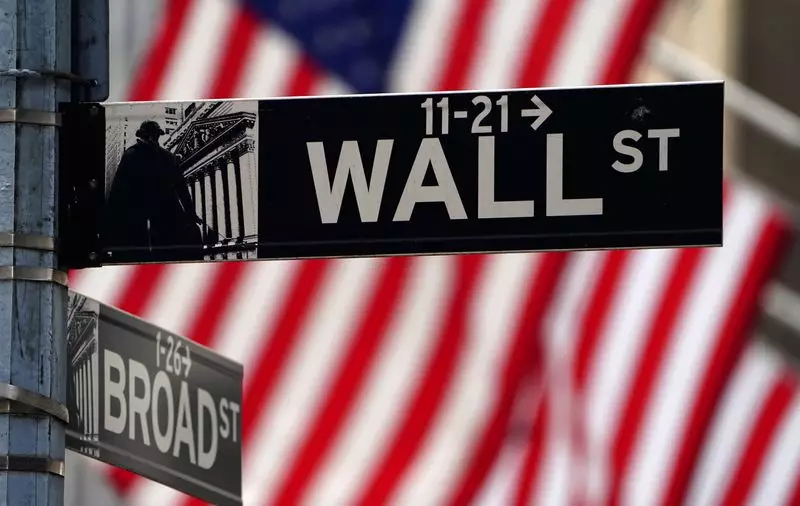As 2024 draws to a close, Wall Street finds itself riding a wave of optimism with its key indexes poised to open the last trading session of the year on a positive note. This surge can be largely attributed to a combination of factors, including a post-pandemic economic recovery, expectations for reduced borrowing costs, and a remarkable uptrend in technology stocks, particularly those related to artificial intelligence (AI). The S&P 500, Dow Jones Industrial Average, and Nasdaq Composite are not just near their all-time highs; they are also on track to mark significant gains for the second consecutive year, reflecting investor confidence in the market’s resilience.
The Federal Reserve’s aggressive monetary policy, marked by nearly a 100-basis point cut in interest rates, has significantly buoyed market sentiment. Lower borrowing costs typically encourage both consumer spending and business investments, vital ingredients for economic growth. In particular, the technology sector has thrived, with companies in communications services and consumer discretionary industries witnessing gains exceeding 30% in 2024. This performance underscores the financial sector’s increasing reliance on AI advancements, which promise to optimize operations and enhance profitability for corporations.
One of the standout performers of this bull run has been Nvidia, a company that has become an emblem of AI potential. Although its stock experienced a remarkable 170% increase this year, it represents a slowdown compared to its even more spectacular surge in the prior year. Nonetheless, this impressive performance helped the company attain a market capitalization of $3 trillion, showcasing the immense value attributed to its AI-driven innovations. Tesla, another key player in the tech arena, has regained the $1 trillion milestone, further solidifying the narrative of tech stocks driving Wall Street’s upward momentum.
As of the early trading hours, the indicators suggest a cautiously optimistic outlook, with Dow and S&P 500 futures showing a slight uptick. Thin trading volumes ahead of the New Year’s holiday may contribute to fluctuations in market behavior, but the prevailing mood reflects a willingness to take risks, bolstered by positive geopolitical sentiments following Donald Trump’s presidential victory. The prospect of deregulation and tax cuts under his administration revitalizes small-cap stocks, with the Russell 2000 index achieving a record high, demonstrating the broader market’s appetite for growth.
Despite the buoyancy in the equity markets, December has heralded some challenges. The S&P 500 appears to be headed for its steepest monthly decline since April, driven by higher yields on Treasury notes, which raise concerns regarding equity valuations. With the benchmark 10-year note yield settling at around 4.5%, investor anxiety mounts over potential inflationary pressures resulting from the upcoming administration’s policies. Analysts caution that any sustained gains may hinge upon achieving clarity on tax and tariff reforms, which can significantly sway market dynamics.
Raffi Boyadjian, a lead market analyst at brokerage XM, emphasizes that clarity on these policies will be crucial for future equity gains. Additionally, market participants are closely monitoring earnings expectations, particularly within the tech sector and companies that are at the forefront of AI innovation.
The political shifts have also invigorated the cryptocurrency market, with Bitcoin soaring to a remarkable $100,000 valuation. Companies like MicroStrategy have seen their stock prices triple as they continue to buy and hold Bitcoin, exemplifying the growing integration of cryptocurrencies within mainstream financial strategies. Other crypto-related stocks have also witnessed ascending trajectories, indicating a recovery and renewed interest in this once-volatile market.
Conversely, not all sectors are enjoying the same momentum. The materials sector has faced headwinds, with declines exceeding 2% due to economic slowdowns in major metals-consuming countries like China. This divergence underscores the complexities of the current economic landscape, where disparate sectors react differently to global economic signals.
As Wall Street approaches the close of 2024, the interplay between economic recovery, technological advancement, and shifting political landscapes paints a complex yet compelling picture. Investors remain cautiously optimistic, with the year-end performance of the equities likely setting the stage for continued evolution in the markets, albeit with a watchful eye on forthcoming monetary policy adjustments and geopolitical developments.

